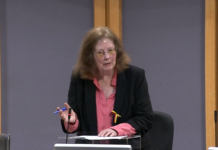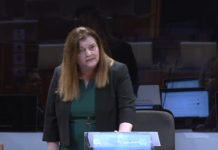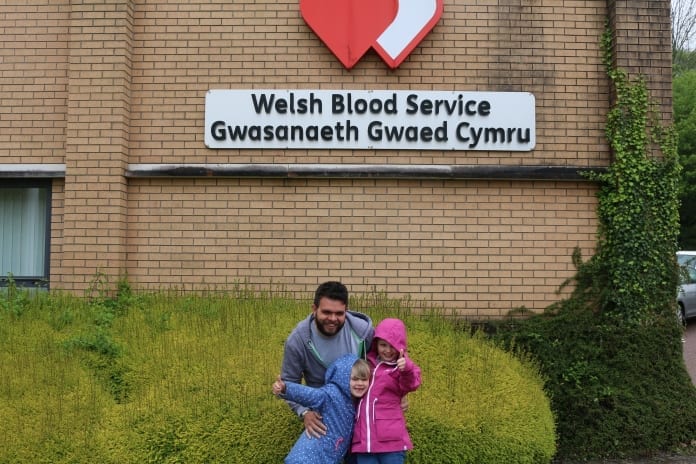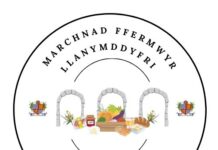A doting Welsh dad who travels 100 miles a month to donate lifesaving platelets is calling on others to join him in the fight against blood cancer by becoming platelet donors this World Blood Cancer Day (May 28).
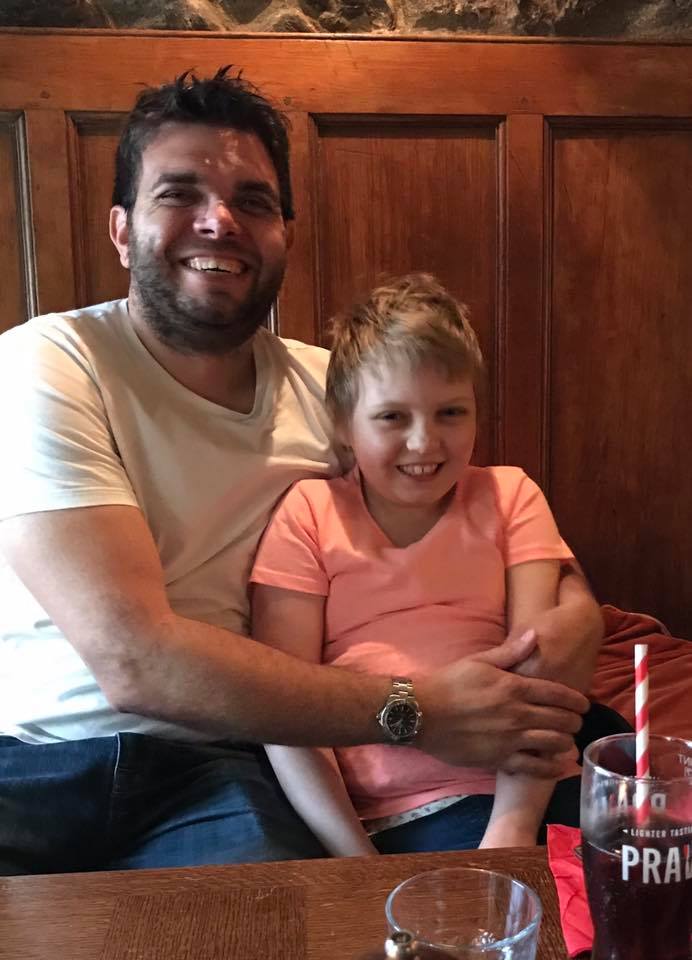
Adam Poole, 37, had his life turned upside down in 2013 when his three year old daughter was diagnosed with leukaemia.
Hannah, now eight years old, was diagnosed with Acute Lymphoblastic Leukaemia, a form of blood cancer that affects the production of white blood cells. Around 650 people are diagnosed with the condition across the UK each year.
Hannah underwent intensive chemotherapy from 2013 to 2016 before ringing the bell at the hospital to signal the end of her chemotherapy treatment after she had beaten cancer. Unfortunately, her cancer returned in July 2018 and she is currently battling it for the second time in her short life.
Alongside receiving chemotherapy to help fight her leukaemia, Hannah routinely needs transfusions of red blood cells and platelets to support her through her chemotherapy treatment. The transfusions enable Hannah to live an active lifestyle which includes playing with her brother and sisters.
Adam said:“Hannah routinely receives chemotherapy to treat her leukaemia but the chemo drains all her energy and can leave her feeling weak and tired. Hannah has a blood test every week to determine if she is fit enough to continue with chemotherapy. Her regular transfusions make a huge difference and shortly after receiving platelets and blood, Hannah is usually back to bouncing around the wards – it’s amazing to see!
“As a parent, it’s such a relief to know there are platelet donations available for Hannah when her platelet levels have gone too low. When her levels are too low the chemotherapy has to stop as it’s too dangerous to continue. Platelets are vital.It’s a blood product that not everyone knows about but it’s so valuable to those who receive it.”
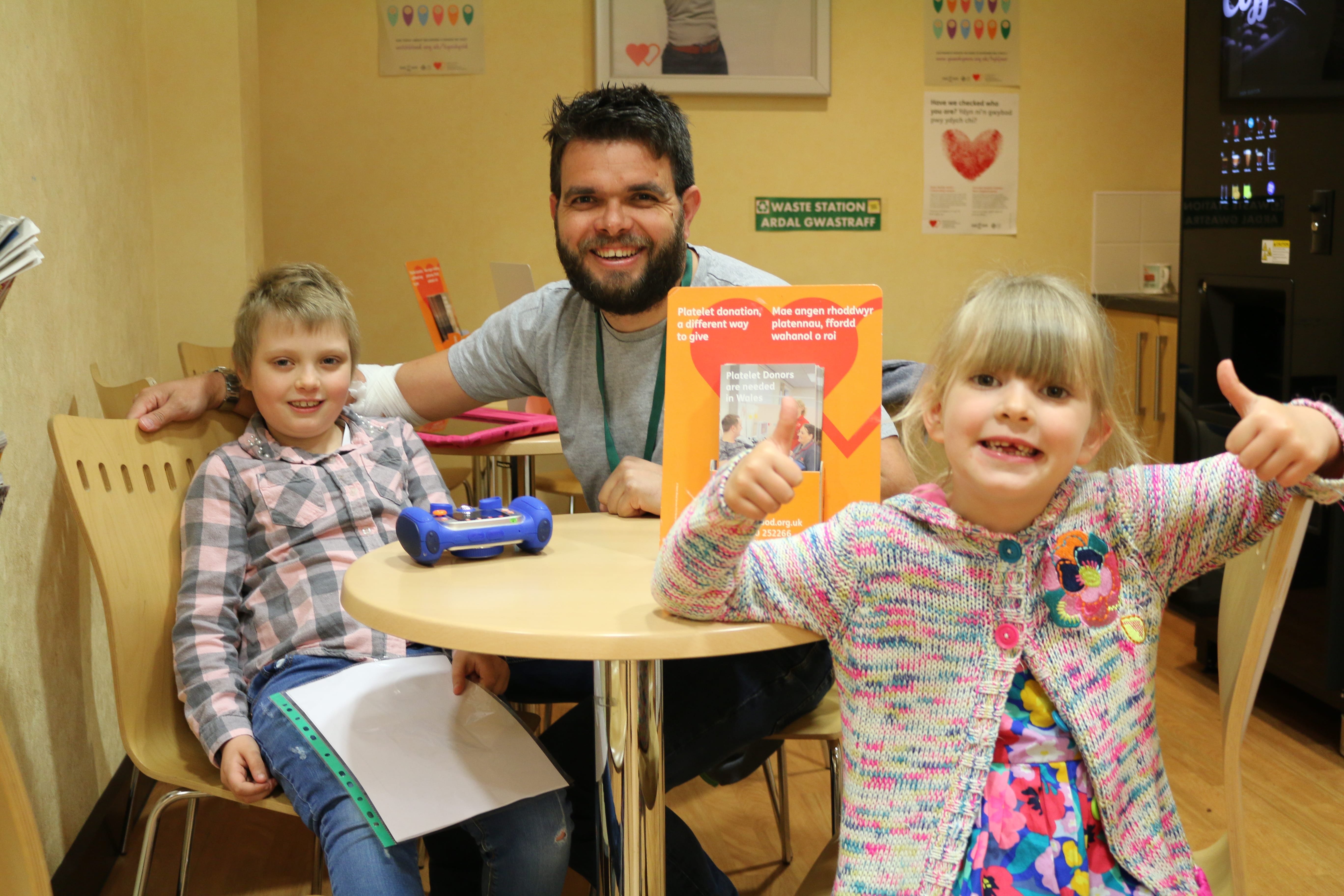
After seeing the impact of platelets on his daughter, the father of four decided to become a platelet donor. Adam and his brother, Liam, now regularly make the 100-mile round trip from Adam’s family home in Ammanford to the Welsh Blood Service’s donation clinic in Talbot Green.
Adam continued: “After Hannah’s first treatment I made the decision to become a platelet donor. I didn’t know much about platelets before hand but our family has now seen the incredible difference receiving platelets has made to our little girl.
“Platelets can only be stored for seven days after donation which means the Welsh Blood Service always needs donors to attend and give their donations. I know Hannah isn’t directly receiving my platelets as we have different blood groups but it’s so comforting to know that someone else’s loved one is receiving a boost thanks to something I’ve done”.
“Every bag of platelets has a date of donation attached to it and I remember one occasion when Hannah was receiving a transfusion from a donation on the same day I gave platelets. There’s a chance that I spent 90 minutes sat next to the kind stranger that helped my daughter that day, which is amazing.”
Hannah is currently receiving care and treatment under a shared agreement between two hospitals, the University Hospital of Wales in Cardiff, and Glangwili General Hospital in Carmarthen.
Adam continued: “The whole experience has changed my mind-set.When we’re at the hospital we understand just how lucky we are that Hannah is still with us. Some of Hannah’s friends over the years haven’t been so fortunate.
“If you’re fit and able, please take the time to consider giving platelets. I never thought our family would be on the receiving end of a donation, nobody does, but those donations have helped keep our Hannah alive.”
Rachel Morgan, apheresis nurse at the Welsh Blood Service, said: “Platelets are such an amazing gift yet many people aren’t as familiar with apheresis donation as they are with donating blood.”
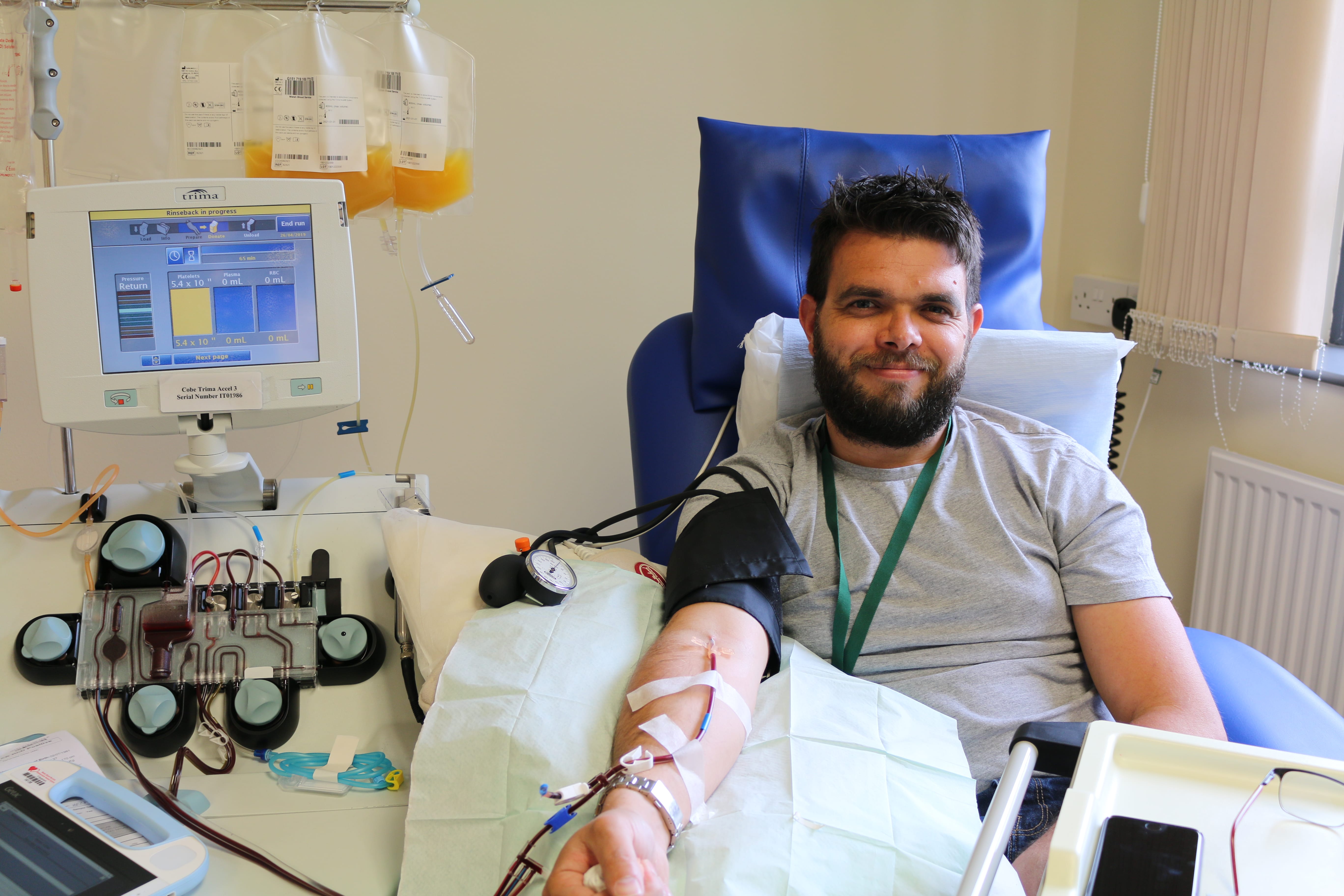
“The physical act of donating platelets through apheresis takes around 90 minutes and can only be made at our Talbot Green clinic, which is five minutes from the M4. We always need new apheresis donors to safeguard the supply of platelets for the patients of Wales so we would echo Adam’s call for donors to enquire about joining our panel of apheresis donors.
“Sadly, those suffering with blood cancer often require bone marrow donations so I’d also encourage donors aged 17-30 to join the Welsh Bone Marrow Donor Registry, the Welsh register of volunteer bone marrow donors.”
Help fight blood cancer this World Blood Cancer Day by booking an appointment for a platelet assessment: visit wbs.wales/platelets or call 0800 252 266 today.
About the Welsh Blood Service (WBS)
- WBS supply blood to 19 hospitals across the whole of Wales.
-
- Platelets are components found in blood that are essential to stop bleeding and bruising.
- Most platelet donations are given to patients who are unable to make enough platelets in their bone marrow. For example, patients with leukaemia or other cancers may have too few platelets as the result of their disease or treatment. Also after major surgery or extensive injury, patients may need platelet transfusions to replace those lost through bleeding.
- Anyone aged between 17 and 66, who weighs over 50 kg (7st 12lb) can become a blood donor but there are height and weight restrictions for females under 20 years old.
- All blood donations are tested for: HIV (the aids virus); Hepatitis B; Hepatitis C; HTLV (Human T Lymphotropic Virus) and Syphilis.
- There are four blood groups – A, AB, B and O each of which will be either Rhesus Negative or Rhesus Positive.
Help keep news FREE for our readers
Supporting your local community newspaper/online news outlet is crucial now more than ever. If you believe in independent journalism, then consider making a valuable contribution by making a one-time or monthly donation. We operate in rural areas where providing unbiased news can be challenging. Read More About Supporting The West Wales Chronicle












